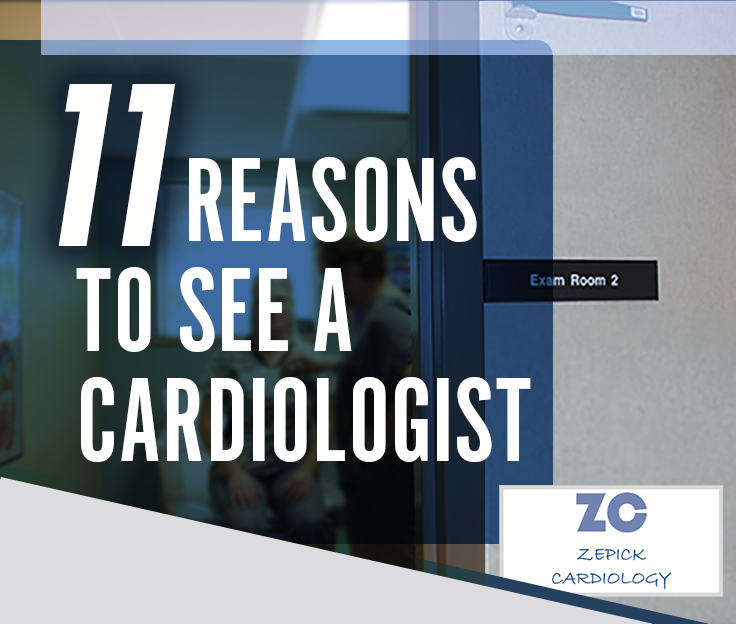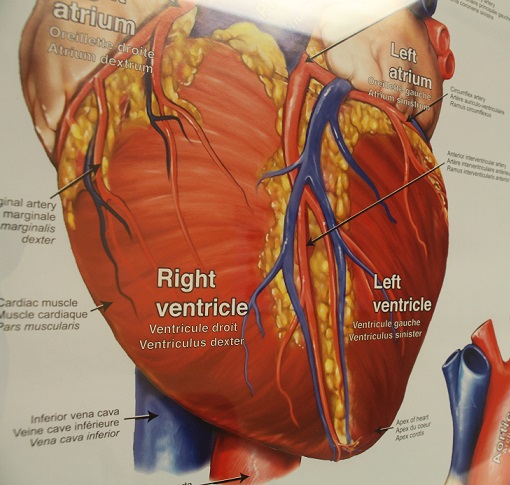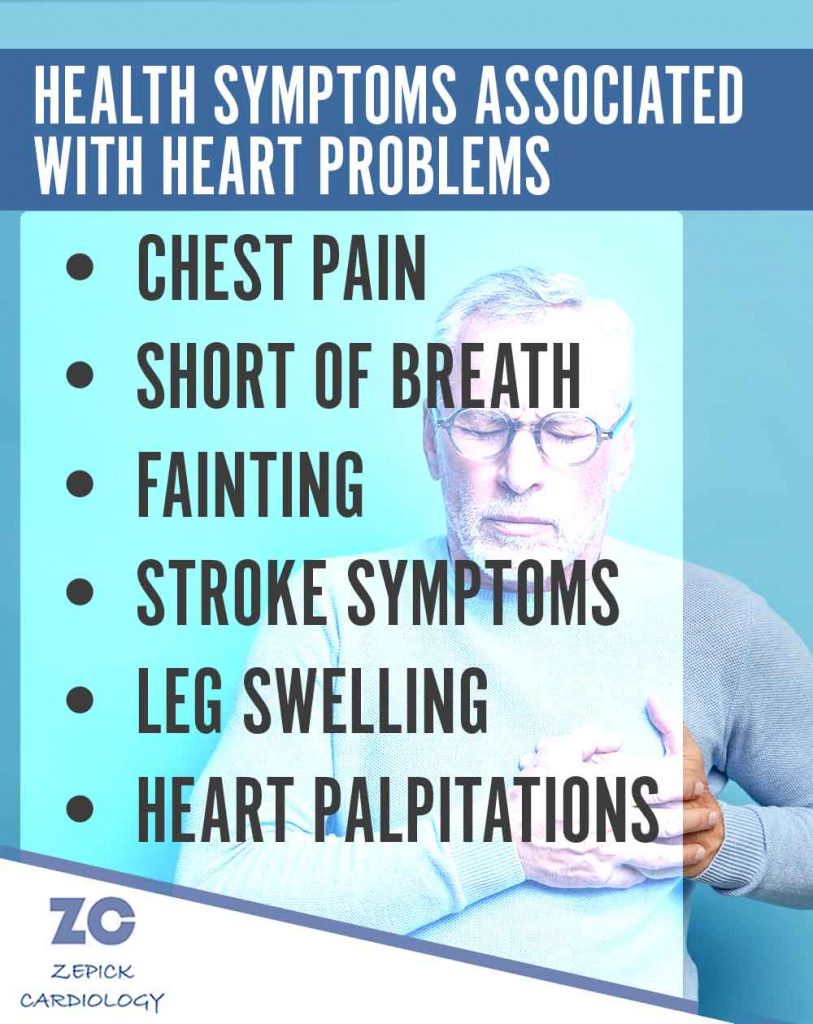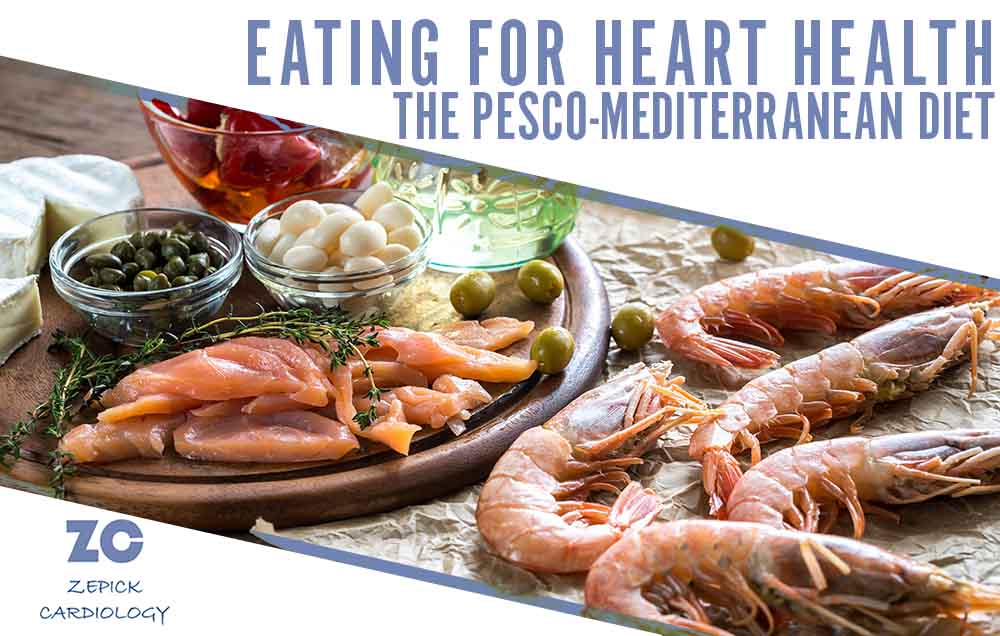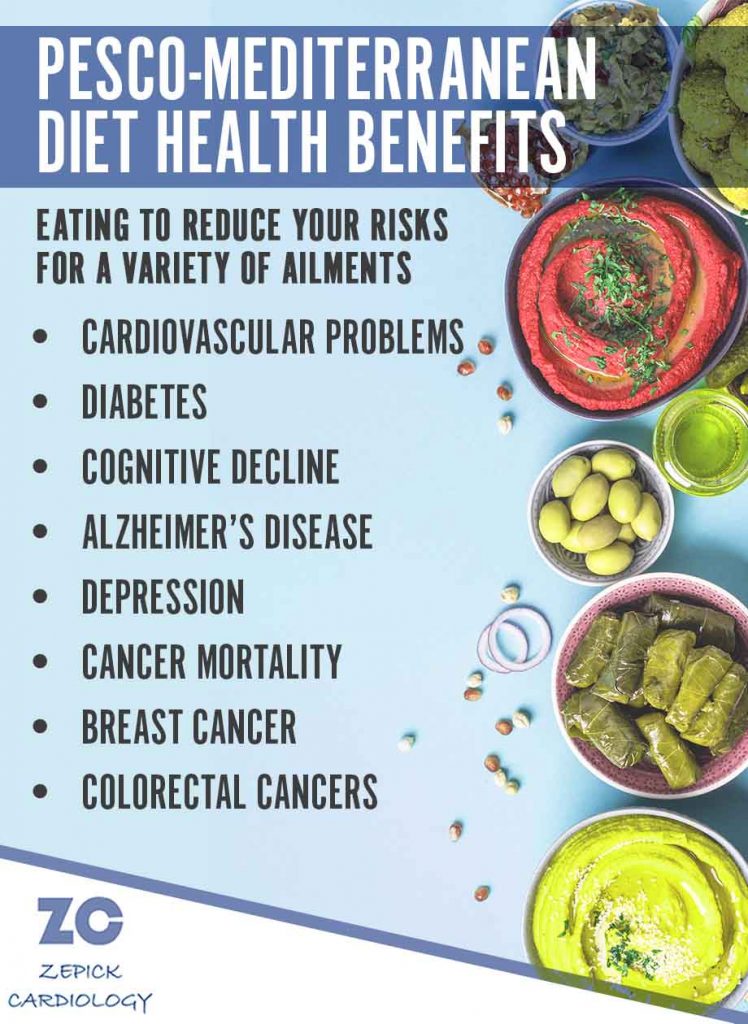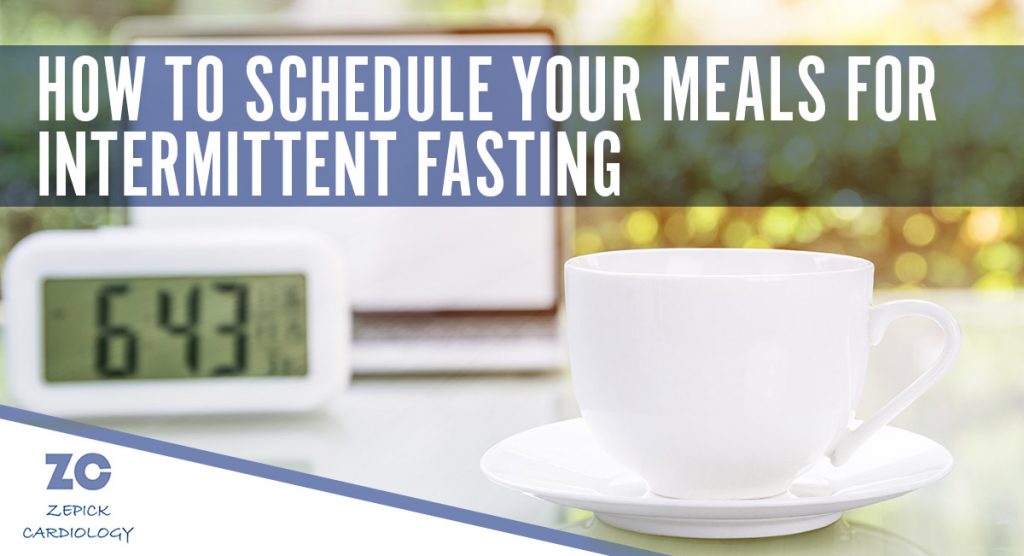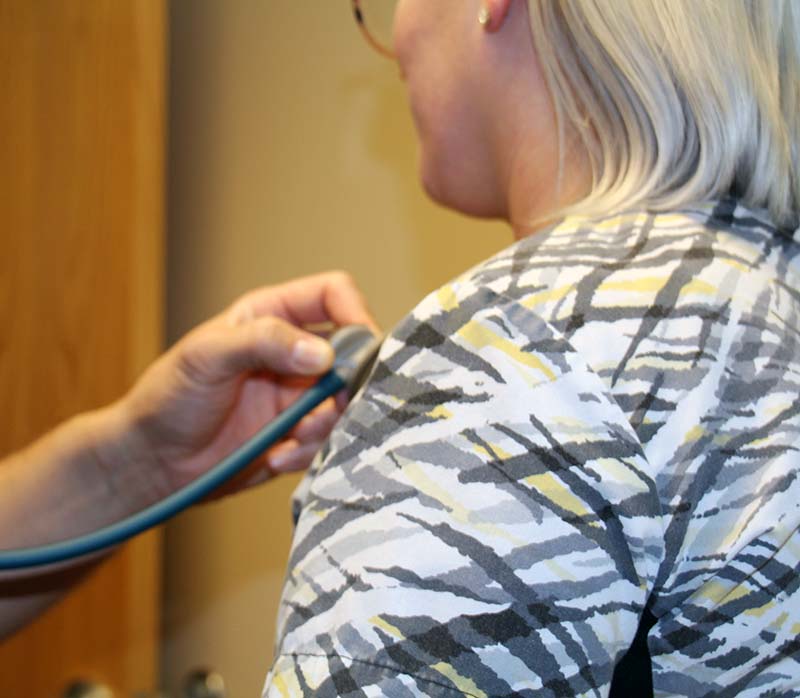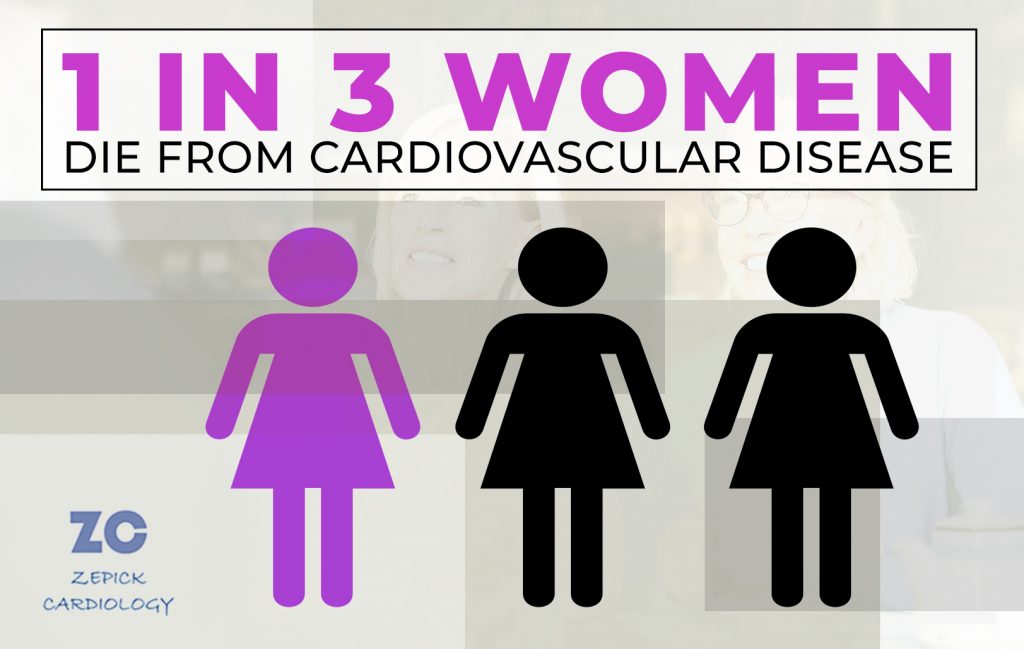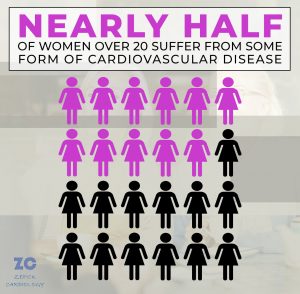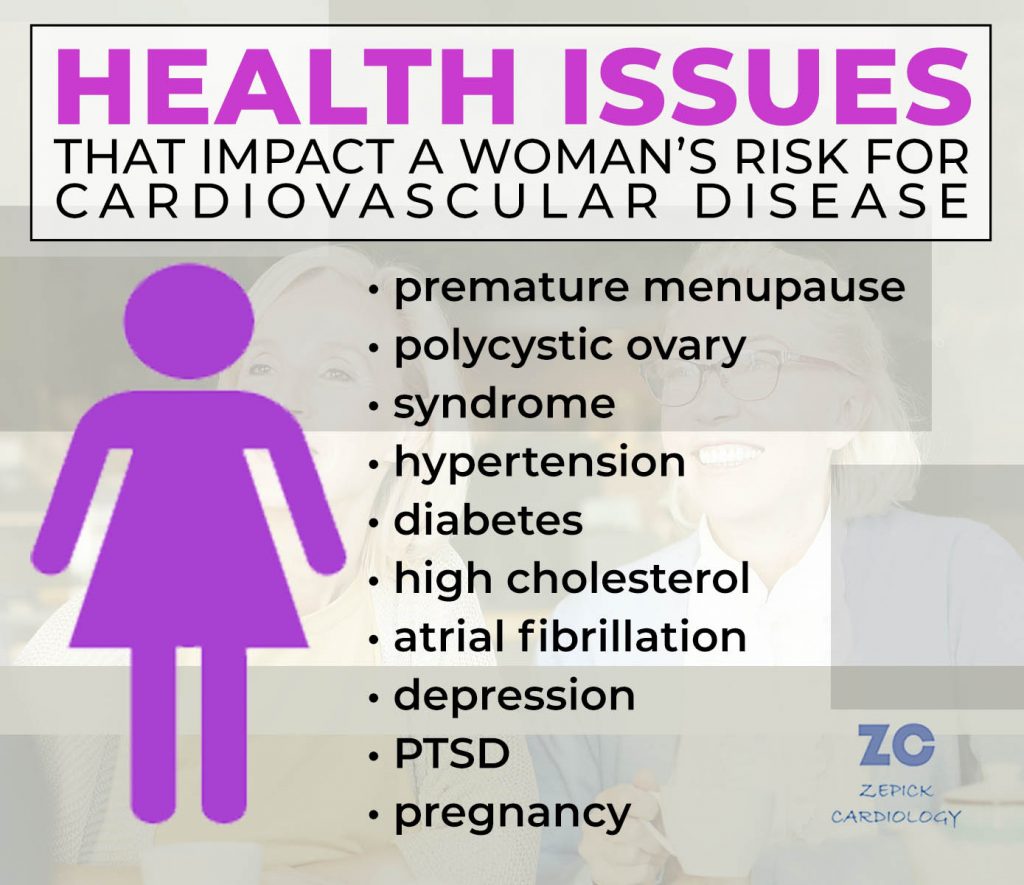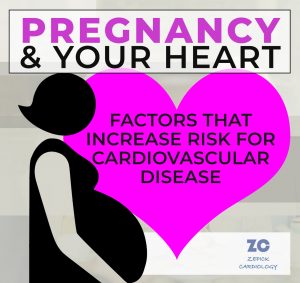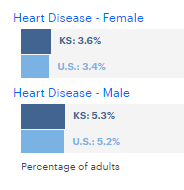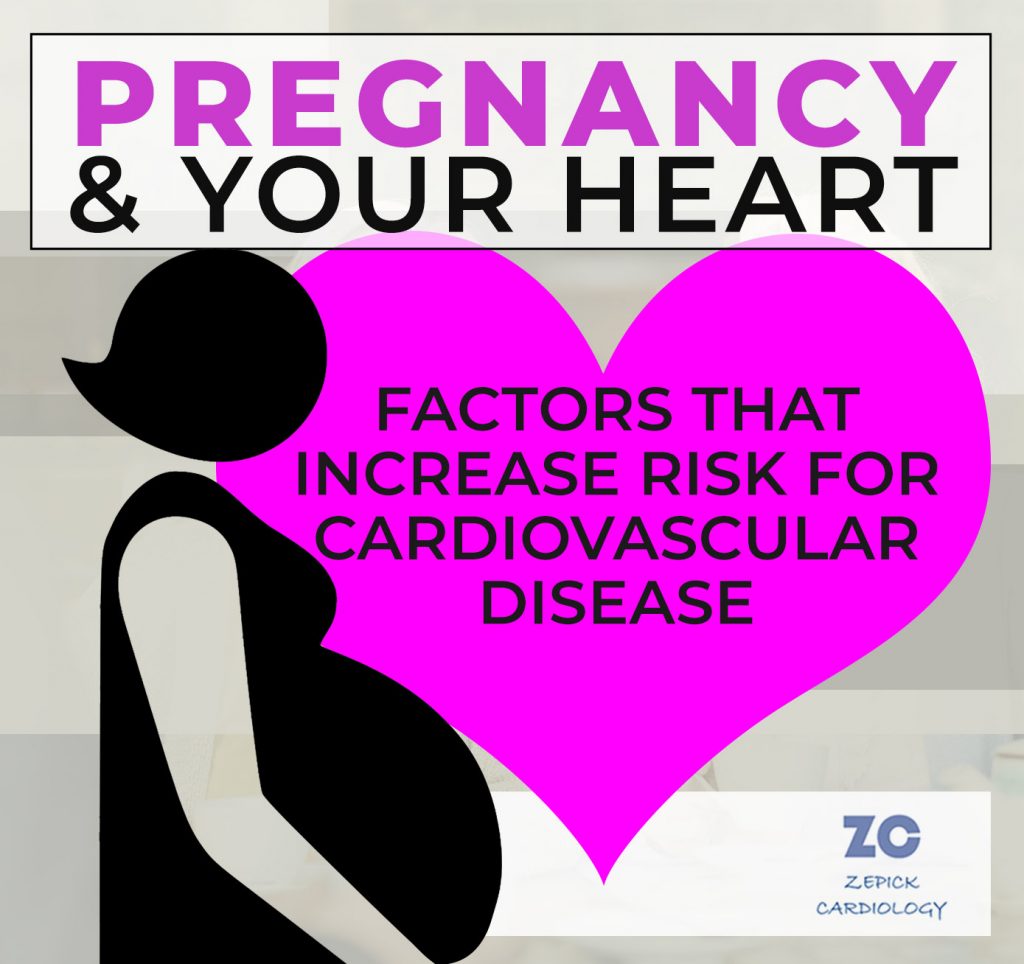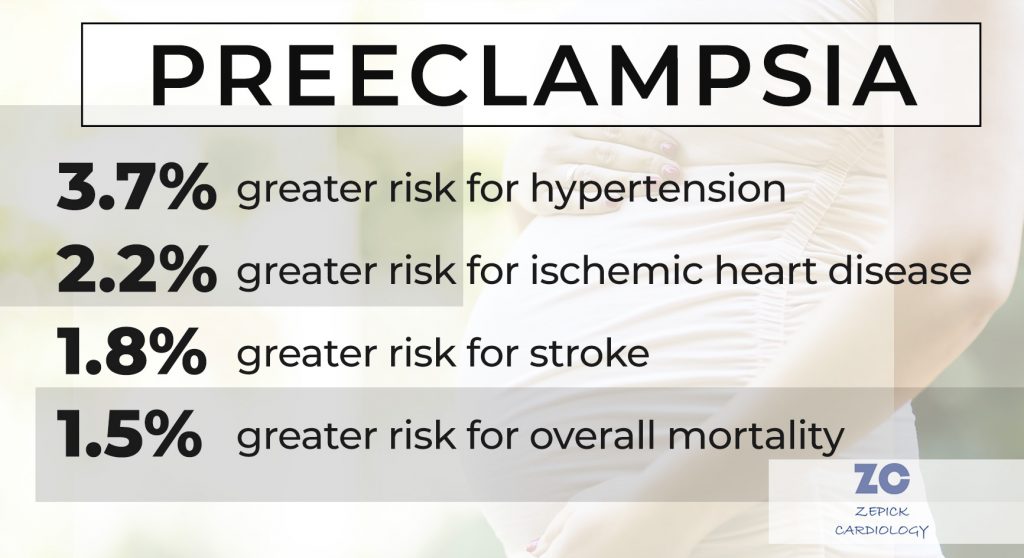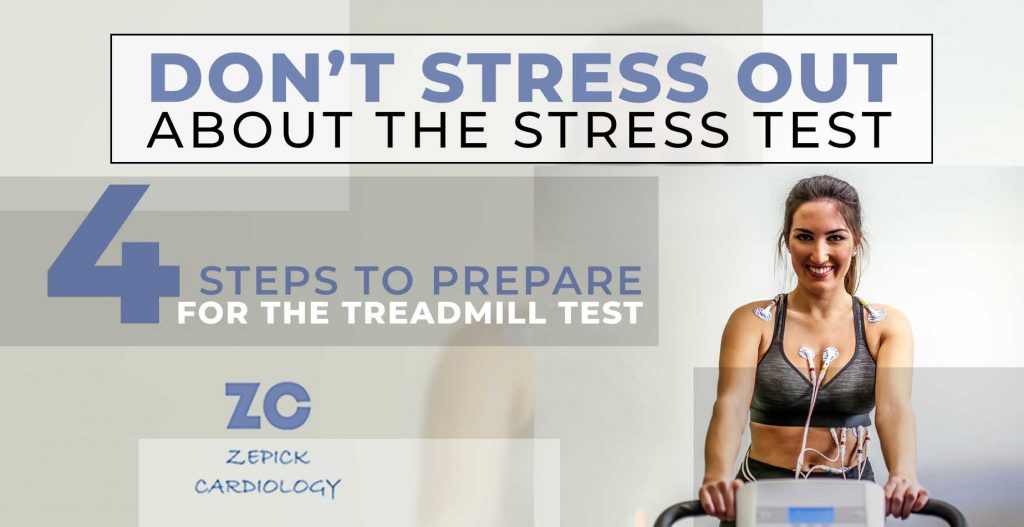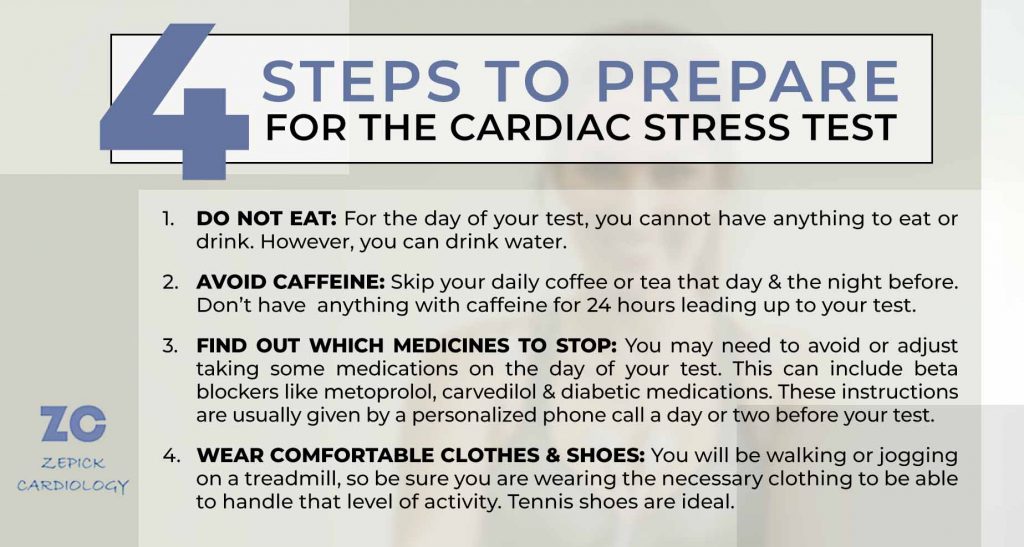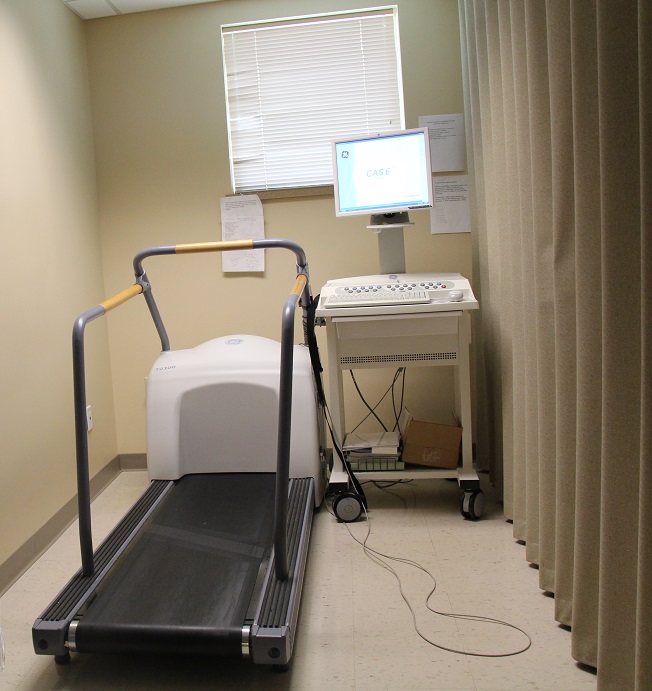Better Blood Pressure Management Can Save Lives
How the Landmark SPRINT Trial is Reducing Risk for Cardiovascular Illness & Death
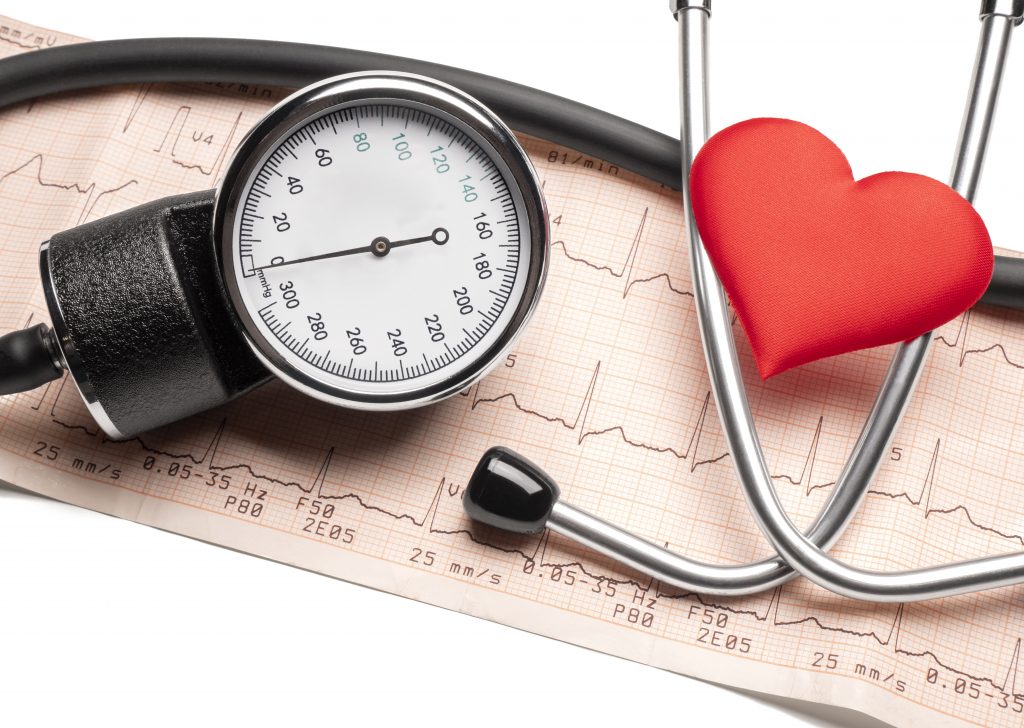
Getting control of your blood pressure is an important step in reducing your risk for cardiovascular disease. The extent at how low to reduce your numbers and just how beneficial this is to your heart was proven in a recent landmark clinical trial.
While advancements are made in the medical industry every year, an intensive study into blood pressure is proving to provide great opportunities to decrease some people’s risk for cardiovascular disease. This is helping the cardiologists at Zepick Cardiology and doctors across the country provide the most informed treatment to better reduce patients’ risk for heart attack, heart disease and other serious illnesses.
This new research breakthrough came from the Systolic Blood Pressure Intervention Trial, aka the SPRINT Study. The research focused on answering one question:
“Will lower blood pressure reduce the risk of heart and kidney diseases, stroke, or age-related declines in memory and thinking?”
This was exciting news for us at Zepick Cardiology. Our cardiologists constantly stay on top of the latest medical information, especially pertaining to the study and treatment of heart-related issues and diseases. Having the latest knowledge and proven data allows us to better treat our patients here in the Wichita area.
Blood Pressure: A Growing Problem
Our county faces a serious problem with blood pressure rates. It is estimated that as many as 103 million American adults suffer with high blood pressure. That means one in three people have issues from it, and it gets worse with age.
If you are over 65, chances are you have high blood pressure, also known as hypertension. As many as 60% of seniors suffer with hypertension and that percentage is only increasing.
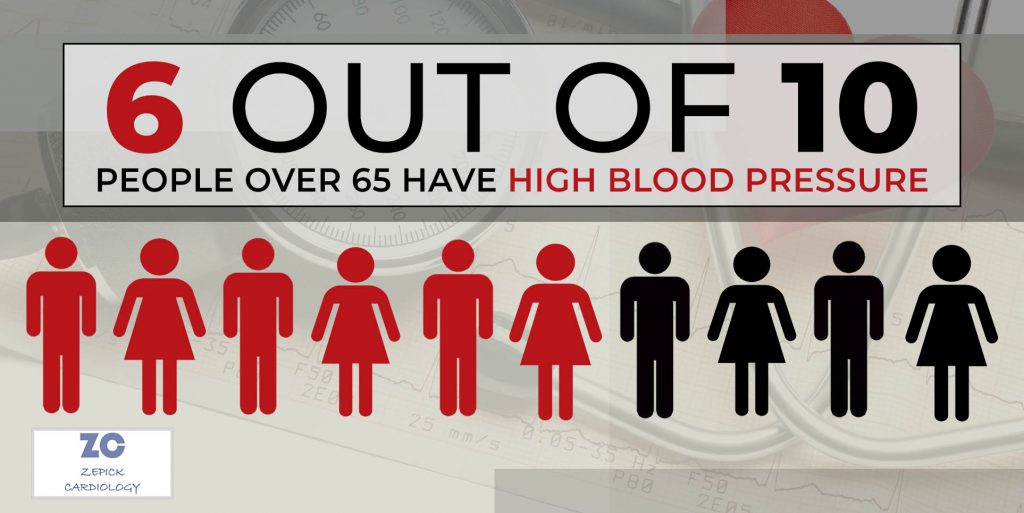
High blood pressure is a serious concern because of the increased risk it brings to developing other dangerous conditions. Having hypertension means you are more likely to experience health problems including:
- Heart attack
- Heart failure
- Stroke
- Kidney disease
- Cognitive decline
What is a Healthy Blood Pressure Level?
For many decades prior to the SPRINT study, it was established that rates of acceptable numbers were up to 140 mm Hg for healthy adults and up to 130 for those with kidney disease. That would mean that a person with a blood pressure rate in the 130s would typically not receive treatment to lower it.
The SPRINT study intended to find out if there was enough proven benefit to increase these standards, to lower the desired blood pressure rate of patients down to 120.
The study put about half of the participants in an intensive group. These people received the necessary treatment to bring their number down to 120. The other half comprised the standard group and received less intensive treatment, only enough to keep their blood pressure down to under 140.
On average, the intensive group received three medications for blood pressure versus the standard group participants who received on average only two.
In the intensive group, they were able to bring the rating down to an average of 121.4. In the standard group, it was brought down to an average of only 136.2
The Expansive SPRINT Study
Despite its name, this trial was nothing like a sprint. For any scientific research to provide reliable information, it must meet rigorous standards. The SPRINT study was expansive, and its results were conclusive.
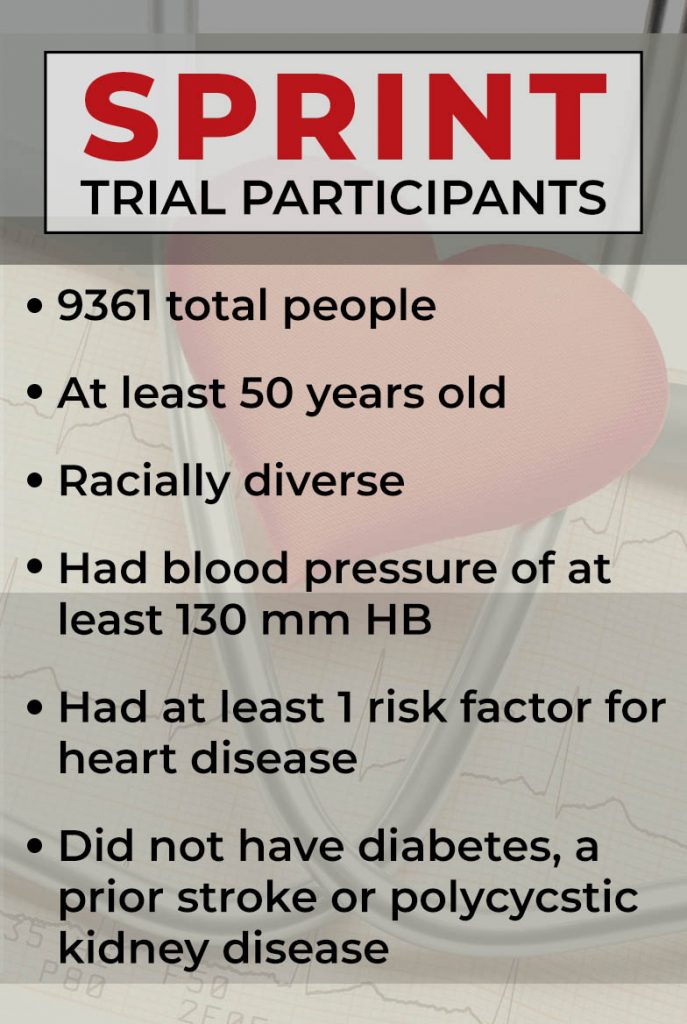
More than 9000 people participated in the SPRINT trial. While the average participant was 68, every participant was at least 50 years old. At least a quarter were 75 or older.
Each person had blood pressure rates of at least 130 and had increased cardiovascular disease risk. Some were previous or current smokers. And many were overweight according to their BMI.
The study began in late 2010 and was expected to last as long as 8 years. However, the results came back so reliable, the study was concluded earlier than expected, with the completion date of July 2016. It was important to health and medical experts that the findings be spread and utilized immediately to best serve the public’s best interest.
We now had new medical data that could help save lives. The experts knew the results were so conclusive, there was no reason to wait.
SPRINT Study Results
This Systolic Blood Pressure Intervention Trial proved that lowering blood pressure below 130 reduced rates of several cardiovascular events, including strokes, heart attacks, and heart failure by nearly a third. It reduced the risk of death by nearly 25%.
The trial found that increased treatment for reducing blood pressure is beneficial, specifically for people who:
- Are elderly
- Have a high blood pressure (at/over 130 mm Hg)
- Have a high risk for cardiovascular disease
- Are tolerating their blood pressure medications well
According to the National Library of Medicine, if the new guidelines informed by the SPRINT study were put in place for adults across the country, we could prevent hundreds of deaths every year.
Danger of Increased Treatment?
With increased medications can come potential for harm from that treatment. Therefore, this study evaluated any harmful effects created by the increased treatment used to reach the lower 120 goal. They looked for such things as electrolyte abnormalities, fainting from a rapid drop of blood pressure, and increased risk of falls.
The study found that the intensive blood pressure treatment was indeed beneficial. It determined that any potential harm from the additional medication did not outweigh the overall overwhelming benefit of reducing to lower numbers.
“These results are extraordinary and provide us even better knowledge and tools in treating our patients’ heart health,” stated Dr. Zepick. “With this proven research, we can put a greater emphasis on reducing blood pressure levels, knowing that such treatment is a safe option to greatly reduce their risk of serious, even fatal, cardiovascular issues.”
Lessons learned in this landmark clinical study are changing treatment procedures for the better.
It helped inform new high blood pressure clinical guidelines of the American Heart Association as well as the American College of Cardiology. Previously, a blood pressure rating was considered high at 140. Now with the results of the SPRINT study, 130 is now considered a high rate, which means:
- People who might not have previously been given treatment for hypertension now will be classified as needing treatment.
- Patients already receiving blood pressure treatment may now receive more intensive treatment to bring it to lower, healthier numbers.
Beyond Heart Health

This SPRINT study is the first large prospective trial demonstrating the overwhelming health benefit of a healthy blood pressure rating of 120 in regard to cardiovascular health. But the benefits of the SPRINT study go beyond treating cardiovascular problems.
As mentioned earlier, the study looked at the effects of hypertension on other serious issues including chronic kidney disease and cognitive decline.
The completed research shows that enhanced efforts lowering numbers to more normal 120 rates did improve issues with chronic kidney disease. However, research is still ongoing regarding its effects on cognitive functioning including Alzheimer’s disease and dementia.
How Can This SPRINT Research Help Me?
If you have high blood pressure, you are at an increased risk for various problems including heart attacks and heart disease. And if you are at least 50 years old, this research suggests you may greatly benefit from a treatment plan to get your number under control.
Seeking out help from your doctor or an experienced cardiologist like those at Zepick Cardiology who understand how to implement the newest guidelines for your heart health is a great first step.
There is no one answer that works for every person. You will want to work closely with your doctor to ensure you are on a proper treatment plan. A good plan is one that works to safely improve your overall health.
“We know now that the lower blood pressure goal of 120 had better outcomes than the 140 goal. This doesn’t necessarily though apply to a given individual. It applies to the population.”
It’s going to be important to determine now what are the individual characteristics that may relate to this new improved goal. What are those factors that would help us to determine whether a given individual should be treated to that goal? Or whether perhaps they should be treated to a different goal?
So, the individualization of blood pressure management is going to take on more energy now given these exciting findings.”
-Dr. William Haley, principal investigator for Mayo Clinic of the SPRINT study
Concerned About Your Blood Pressure?
If you are concerned that your blood pressure is too high, you should get it checked by a medical profession. You can contact your general practitioner, or you can make an appointment with a local cardiologist directly.
Contact Zepick Cardiology here in Wichita. Call (316) 616-2020 to arrange for a visit with a cardiovascular specialist on any heart health concerns you have.






